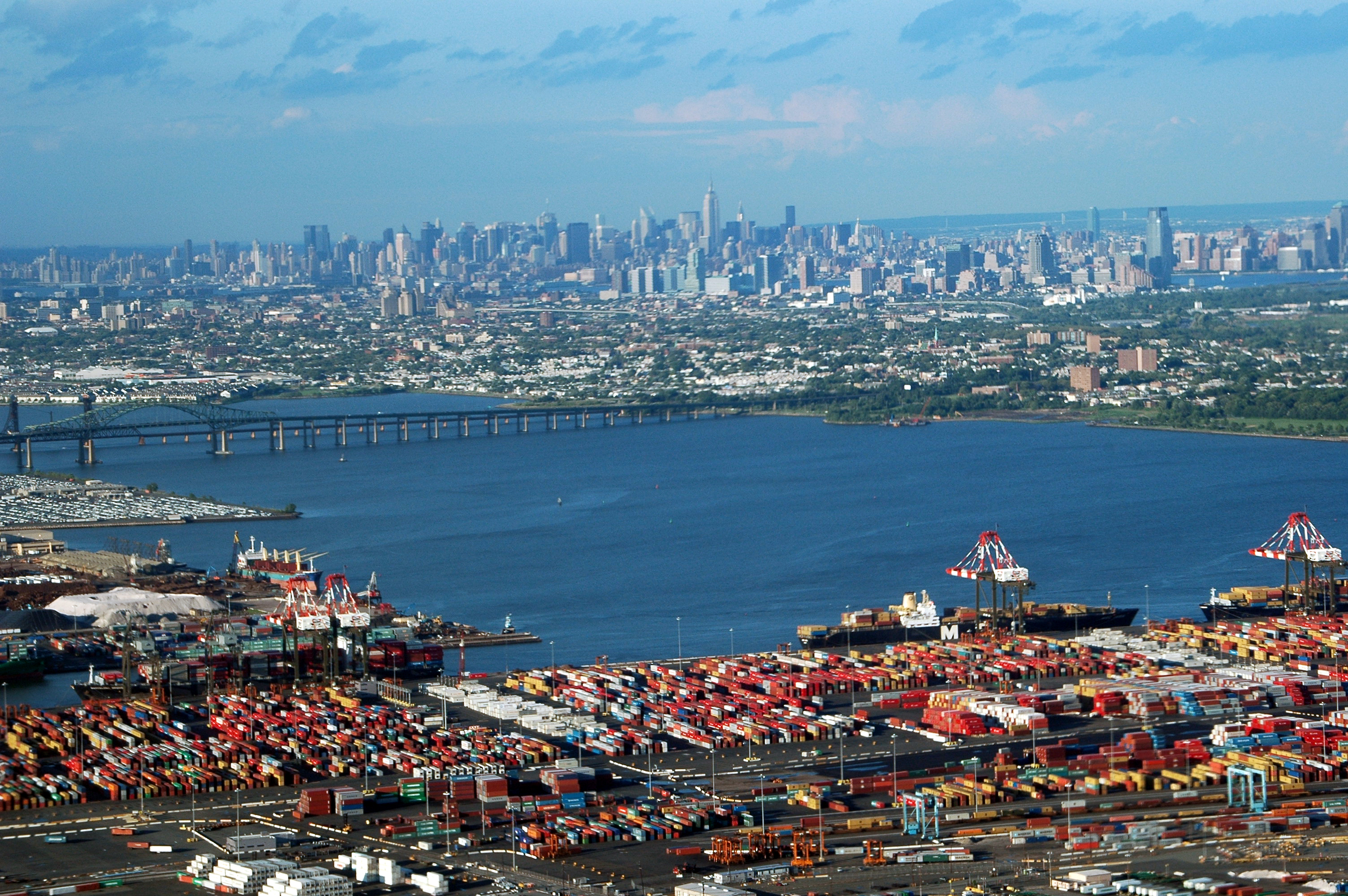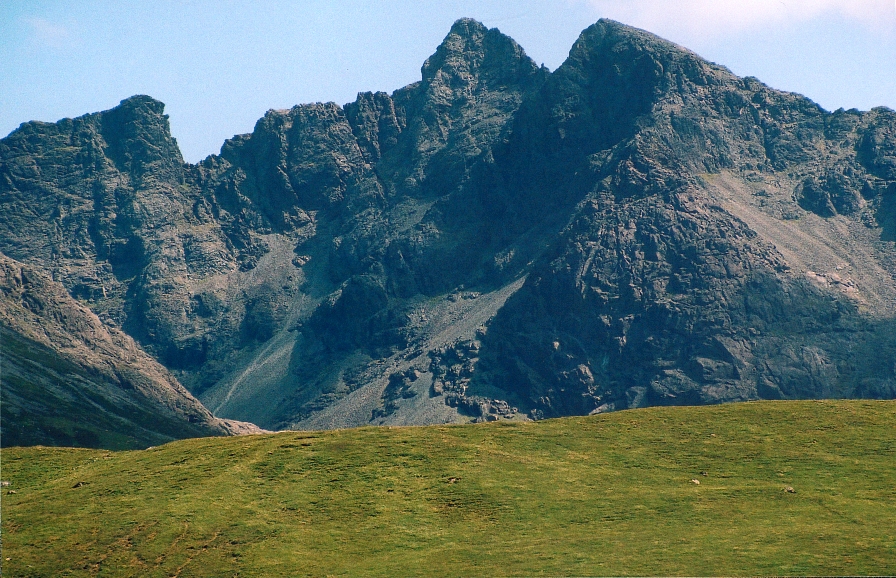|
Port Mòr
Port Mòr is a harbour and settlement on the Isle of Muck in the Inner Hebrides off the west coast of Scotland. Port Mòr is the most populated settlement on the island, currently with around fifteen residents. In 2005, a pier and causeway A causeway is a track, road or railway on the upper point of an embankment across "a low, or wet place, or piece of water". It can be constructed of earth, masonry, wood, or concrete. One of the earliest known wooden causeways is the Sweet T ... were built at Port Mòr to allow the ferry to dock on the island. The settlement is the site of the island's first hotel, built by Ewen MacEwen, whose family has owned Muck for over 100 years. References External linkswww.isleofmuck.com {{DEFAULTSORT:Port Mor Populated places in Lochaber Villages in the Inner Hebrides Small Isles, Lochaber ... [...More Info...] [...Related Items...] OR: [Wikipedia] [Google] [Baidu] |
Port Mor, Muck
A port is a maritime facility comprising one or more wharves or loading areas, where ships load and discharge cargo and passengers. Although usually situated on a sea coast or estuary, ports can also be found far inland, such as Hamburg, Manchester and Duluth; these access the sea via rivers or canals. Because of their roles as ports of entry for immigrants as well as soldiers in wartime, many port cities have experienced dramatic multi-ethnic and multicultural changes throughout their histories. Ports are extremely important to the global economy; 70% of global merchandise trade by value passes through a port. For this reason, ports are also often densely populated settlements that provide the labor for processing and handling goods and related services for the ports. Today by far the greatest growth in port development is in Asia, the continent with some of the world's largest and busiest ports, such as Singapore and the Chinese ports of Shanghai and Ningbo-Zhoushan. As of 202 ... [...More Info...] [...Related Items...] OR: [Wikipedia] [Google] [Baidu] |
Harbor
A harbor (American English), or harbour (Commonwealth English; see spelling differences), is a sheltered body of water where ships, boats, and barges can be moored. The term ''harbor'' is often used interchangeably with ''port'', which is a man-made facility built for loading and unloading vessels and dropping off and picking up passengers. Harbors usually include one or more ports. Alexandria Port in Egypt, meanwhile, is an example of a port with two harbors. Harbors may be natural or artificial. An artificial harbor can have deliberately constructed breakwaters, sea walls, or jetties or they can be constructed by dredging, which requires maintenance by further periodic dredging. An example of an artificial harbor is Long Beach Harbor, California, United States, which was an array of salt marshes and tidal flats too shallow for modern merchant ships before it was first dredged in the early 20th century. In contrast, a natural harbor is surrounded on several sides ... [...More Info...] [...Related Items...] OR: [Wikipedia] [Google] [Baidu] |
Isle Of Muck
An isle is an island, land surrounded by water. The term is very common in British English. However, there is no clear agreement on what makes an island an isle or its difference, so they are considered synonyms. Isle may refer to: Geography * Isle (river), a river in France * Isle, Haute-Vienne, a commune of the Haute-Vienne ''département'' in France * Isle, Minnesota, a small city in the United States * River Isle, a river in England Arts, entertainment, and media * ''Interdisciplinary Studies in Literature and Environment'' (or ''ISLE''), a journal published by Oxford University Press for the Association for the Study of Literature and Environment *''The Isle'', 2017 film with Conleth Hill * ''The Isle'', a 2000 South Korean film directed by Kim Ki-duk * ''Isle'' (album) Other uses * International Society for the Linguistics of English (ISLE), a learned society of linguists See also * Aisle, a space for walking, e.g., in a church, classroom, theatre, supermarket, etc. * Isl ... [...More Info...] [...Related Items...] OR: [Wikipedia] [Google] [Baidu] |
Inner Hebrides
The Inner Hebrides ( ; ) is an archipelago off the west coast of mainland Scotland, to the south east of the Outer Hebrides. Together these two island chains form the Hebrides, which experience a mild oceanic climate. The Inner Hebrides comprise 35 inhabited islands as well as 44 uninhabited islands with an area greater than . Skye, Isle of Mull, Mull, and Islay are the three largest, and also have the highest populations. The main commercial activities are tourism, crofting, fishing and Scotch whisky, whisky distilling. In modern times the Inner Hebrides have formed part of two separate local government jurisdictions, one to the north and the other to the south. Together, the islands have an area of about , and had a population of 18,948 in 2011. The population density is therefore about . There are various important prehistoric structures, many of which pre-date the first written references to the islands by Classical antiquity, Roman and Greek authors. In the historic period ... [...More Info...] [...Related Items...] OR: [Wikipedia] [Google] [Baidu] |
Pier
A pier is a raised structure that rises above a body of water and usually juts out from its shore, typically supported by piling, piles or column, pillars, and provides above-water access to offshore areas. Frequent pier uses include fishing, boat docking and access for both passengers and cargo, and oceanside recreation. Bridges, buildings, and walkways may all be supported by Pier (architecture), architectural piers. Their open structure allows tides and currents to flow relatively unhindered, whereas the more solid foundations of a quay or the closely spaced piles of a wharf can act as a Breakwater (structure), breakwater, and are consequently more liable to silting. Piers can range in size and complexity from a simple lightweight wooden structure to major structures extended over . In American English, a pier may be synonymous with a Dock (maritime), dock. Piers have been built for several purposes, and because these different purposes have distinct regional variances, the ... [...More Info...] [...Related Items...] OR: [Wikipedia] [Google] [Baidu] |
Causeway
A causeway is a track, road or railway on the upper point of an embankment across "a low, or wet place, or piece of water". It can be constructed of earth, masonry, wood, or concrete. One of the earliest known wooden causeways is the Sweet Track in the Somerset Levels, England, which dates from the Neolithic age. Timber causeways may also be described as both boardwalks and bridges. Etymology When first used, the word ''causeway'' appeared in a form such as "causey way", making clear its derivation from the earlier form "causey". This word seems to have come from the same source by two different routes. It derives ultimately, from the Latin for heel, , and most likely comes from the trampling technique to consolidate earthworks. Originally, the construction of a causeway used earth that had been trodden upon to compact and harden it as much as possible, one layer at a time, often by slaves or flocks of sheep. Today, this work is done by machines. The same technique w ... [...More Info...] [...Related Items...] OR: [Wikipedia] [Google] [Baidu] |
Populated Places In Lochaber
Population is a set of humans or other organisms in a given region or area. Governments conduct a census to quantify the resident population size within a given jurisdiction. The term is also applied to non-human animals, microorganisms, and plants, and has specific uses within such fields as ecology and genetics. Etymology The word ''population'' is derived from the Late Latin ''populatio'' (a people, a multitude), which itself is derived from the Latin word ''populus'' (a people). Use of the term Social sciences In sociology and population geography, population refers to a group of human beings with some predefined feature in common, such as location, race, ethnicity, nationality, or religion. Ecology In ecology, a population is a group of organisms of the same species which inhabit the same geographical area and are capable of interbreeding. The area of a sexual population is the area where interbreeding is possible between any opposite-sex pair within the area ... [...More Info...] [...Related Items...] OR: [Wikipedia] [Google] [Baidu] |
Villages In The Inner Hebrides
A village is a human settlement or Residential community, community, larger than a hamlet (place), hamlet but smaller than a town with a population typically ranging from a few hundred to a few thousand. Although villages are often located in rural areas, the term urban village is also applied to certain urban neighborhoods. Villages are normally permanent, with fixed dwellings; however, transient villages can occur. Further, the dwellings of a village are fairly close to one another, not scattered broadly over the landscape, as a dispersed settlement. In the past, villages were a usual form of community for societies that practice subsistence agriculture and also for some non-agricultural societies. In Great Britain, a hamlet earned the right to be called a village when it built a Church (building), church. [...More Info...] [...Related Items...] OR: [Wikipedia] [Google] [Baidu] |






